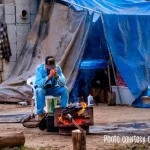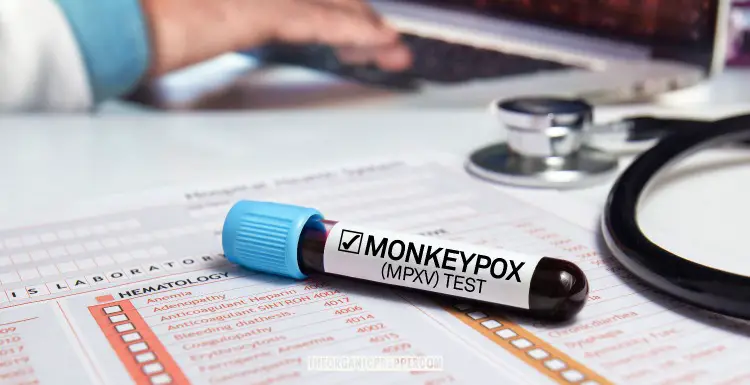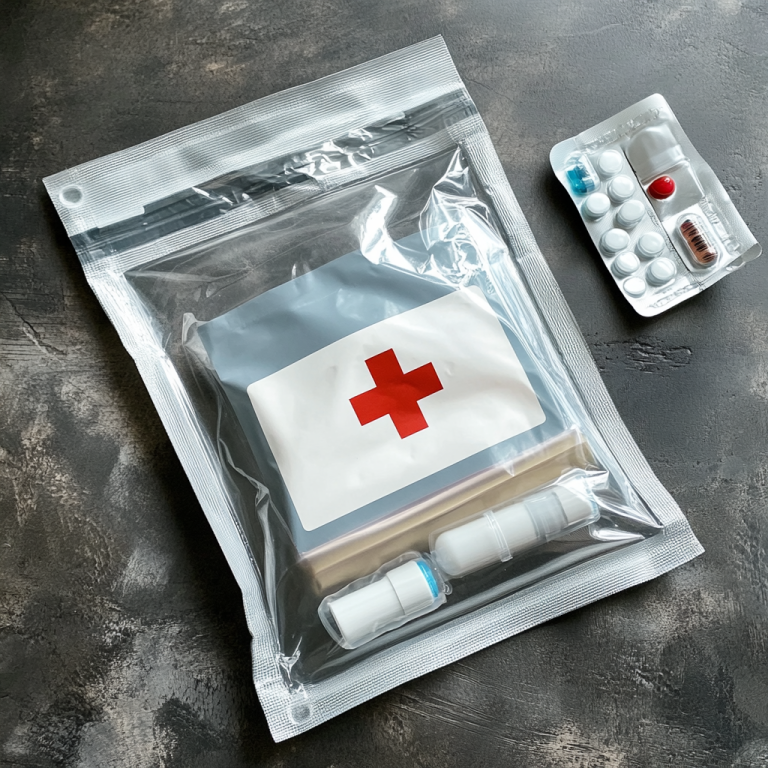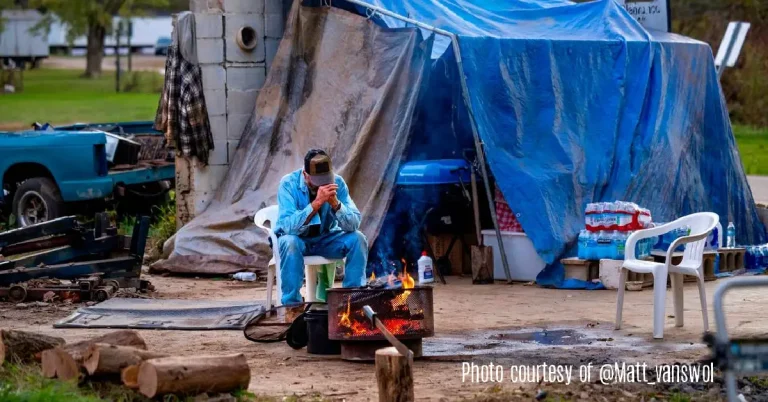(Psst: The FTC wants me to remind you that this website contains affiliate links. That means if you make a purchase from a link you click on, I might receive a small commission. This does not increase the price you’ll pay for that item nor does it decrease the awesomeness of the item. ~ Daisy)
Author of The Blackout Book and the online course Bloom Where You’re Planted
Is monkeypox the next big pandemic? Are you at risk? Is it serious? Here’s a roundup of what we know about the virus that’s all over the mainstream media.
Monkeypox has been on the global radar since 2022. Just last week, the World Health Organization declared it an international public health emergency, setting the stage for…
I think we remember.
Part of this article is from research I did in 2022. Part of it is newer information from the current panic. That’s why you’ll see such a wide disparity in the links and there will also be some older comments.
Where did monkeypox start, and where are the current cases?
Monkeypox is not a brand new virus. It was initially discovered in 1958, in – you guessed it – colonies of monkeys. The first confirmed human case of monkeypox is documented as occurring in 1970 in the Democratic Republic of Congo. According to the CDC:
The first human case of monkeypox was recorded in 1970 in the Democratic Republic of the Congo (DRC) during a period of intensified effort to eliminate smallpox. Since then, monkeypox has been reported in people in several other central and western African countries: Cameroon, Central African Republic, Cote d’Ivoire, Democratic Republic of the Congo, Gabon, Liberia, Nigeria, Republic of the Congo, and Sierra Leone. The majority of infections are in the Democratic Republic of the Congo. (source)
What with global travel, the virus has escaped the continent of Africa, and cases have been diagnosed in countries where it is not endemic as of May 21, 2022, including the United States, Israel, Spain, the UK, Australia, Belgium, Canada, France, Germany, Italy, the Netherlands, Sweden, and Portugal. (source)
Currently, as of the update of this article, according to the CDC itself, there are only three cases of monkeypox in the entire United States.
What is monkeypox?
According to Harvard University:
Monkeypox is an infection caused by a virus in the same family as smallpox. It causes a similar (though usually less severe) illness and is most common in central and western Africa. It was first discovered in research monkeys more than half a century ago. Certain squirrels and rats found in Africa are among other animals that harbor this virus.
The early symptoms of monkeypox are flu-like and include
- fever
- fatigue
- headache
- enlarged lymph nodes.
The rash that appears a few days later is unique. It often starts on the face and then appears on the palms, arms, legs, and other parts of the body. Some recent cases began with a rash on the genitals. Over a week or two, the rash changes from small, flat spots to tiny blisters (vesicles) similar to chickenpox and then to larger, pus-filled blisters. These can take several weeks to scab over. Once that happens, the person is no longer contagious.
Although the disease is usually mild, complications can include pneumonia, vision loss due to eye infection, and sepsis, a life-threatening infection. (source)
Most of the statistics available for monkeypox are from African countries, where healthcare and nutrition are different than outside of that region.
The case-fatality ratio has varied but has remained between 0 and 10 percent in all registered infections.
“It’s been estimated that the West Africa strain, which the UK cases have, has a mortality rate of about one percent. There is also a strain found in the Congo region which can be fatal in as many as 10 percent of cases, but the UK cases do not have this strain,” Simon Clarke, associate professor in cellular microbiology at the University of Reading, told SMC. (source)
At the time of publication, there have been no deaths from monkeypox outside of Africa.
How is monkeypox transmitted?
There are several websites stating that this is a sexually transmitted disease. It’s really too soon to make that judgment. As per Harvard:
Monkeypox is not considered a sexually transmitted illness (STI) because it can be spread through any physical contact, not just through sexual contact. Some of the recent cases have occurred among men who have sex with men. That pattern hasn’t been reported before. (source)
The reason this may currently be the case is that “superspreader” events took place in Europe that are thought to be the basis for the spread of this virus.
Spanish health authorities believe that a string of new monkeypox cases is linked to a gay sauna near Madrid and a Pride event in the Canary Islands that drew tens of thousands of people.
Spain announced 23 new cases Friday. Madrid regional health chief Enrique Ruiz Escudero told journalists that health officials have been tracing the cases from an outbreak at the now-closed sauna, Reuters reports…
…Elsewhere in Europe, an outbreak of monkeypox in Belgium has been connected to visitors at the Darklands fetish festival in early May, PinkNews reports.
At least three cases have been linked to the festival, according to the organizers.
“There’s reason to assume that the virus has been brought in by visitors from abroad to the festival after recent cases in other countries,” they said in a statement. (source)
Beware of generalizing this or any other disease as “only” affecting those with different lifestyles. People said the same thing about other viruses, which later became widespread outside the original community.
Suffice it to say, this virus is spread by close, personal contact of all kinds.
Is there a vaccine for monkeypox?
Unsurprisingly, there are already vaccines for this illness. First is the regular smallpox vaccine. Since the two viruses are of the same family, this vaccine is said to be 85% effective in preventing infection. ACAM200 is a live virus, and the recently vaccinated must take care to prevent infecting others.
Following a successful inoculation, a lesion will develop at the site of the vaccination. The virus growing at the site of this inoculation lesion can be spread to other parts of the body or even to other people. (source)
A newer vaccine is JYNNEOSTM, also known as Imvamune or Imvanex. This vaccine is specifically for monkeypox.
JYNNEOSTM is administered as a live virus that is non-replicating. It is administered as two subcutaneous injections four weeks apart. There is no visible “take” and, as a result, no risk for spread to other parts of the body or other people. People who receive JYNNEOS TM are not considered vaccinated until they receive both doses of the vaccine. (source)
The CDC reports that these vaccines can be preventative even up to 4 days after infection. The ACAM200 vaccine is introduced by scarification.
Smallpox vaccine is administered by puncturing the skin multiple times with a bifurcated needle containing a small quantity of vaccine. A small papule develops after 3 to 5 days, following the virus replication in the dermis. The papule evolves into a vesicular and pustular stage over 8 to 10 days.17 There is typically an indurated area surrounding the central lesion. This is followed by scab formation with the development of a residual scar. The process of vesiculation and pustule formation defines a ‘take’ of the vaccine. The take is considered equivocal if a pustule, ulcer, or scab, does not develop at the vaccine site; revaccination is recommended in this situation.17 Skin reactions following revaccination tend to be milder and have an accelerated course. (source)
Once smallpox was deemed to be eradicated, the smallpox vaccine was no longer required.
Risks of the smallpox vaccine
The smallpox vaccine was discontinued as a regular part of the vaccine schedule in 1972. The CDC lists the following risk factors:
There are side effects and risks related to the smallpox vaccine. Most people have normal, usually mild reactions such as a sore arm, fever, and body aches. However, some people may have reactions ranging from serious to life-threatening.
You are more likely to have serious side effects if you:
- currently have or have ever had certain chronic skin conditions, even if it was only once (especially eczema or atopic dermatitis.)
- have active breaks in the skin at the time of vaccination, like poison ivy or acne.
- have a weakened immune system. You may have a weakened immune system if you:
- Have had a transplant.
- Are HIV-positive.
- Have cancer, or are being treated for cancer.
- Are taking medications that suppress your immune system, like steroids. (source)
According to the Children’s Hospital of Philadelphia, the smallpox vaccine was discontinued because the risks of the vaccine were higher than the risk of becoming infected with smallpox.
Although this disease is deadly, no cases occur anywhere in the world, so the risk today is zero. Because there is no risk of disease, this is a situation in which the use of a vaccine does NOT outweigh the risks of disease.
Vaccine risks
- Inflammation of heart or tissues surrounding heart
- Infection of the inoculation site
- Inadvertent inoculation of another site or other people
- Swelling of brain or spinal cord
- Severe allergic reaction
- Rarely death (source)
What about vaccinia virus?
There is some risk that those inoculated against smallpox can transmit illness to their close contacts. This hasn’t been studied since the 1960s. As per the NCBI:
Vaccinia virus may be spread from person-to-person, which means that people who have close contact with recent vaccinees may be exposed to the virus and may be at risk of developing complications. In particular, close contacts of persons with a history of eczema or atopic dermatitis, or contacts of immunocompromised individuals should not be vaccinated. Individuals should not be vaccinated if they have close contact with pregnant women or infants. Close contacts include both household members and sexual partners.
Eczema vaccinatum and inadvertent inoculation are the most frequently reported conditions in contacts of recent vaccinees. Twenty percent of the eczema vaccinatum and inadvertent inoculation cases reported in a 1968 study occurred in contacts of vaccinees.21 In this study and several others from the 1960s, eczema vaccinatum was more severe in contacts than in those who were vaccinated themselves.21,27 No cases of progressive vaccinia or postvaccinial encephalitis have been documented in contacts of vaccinees.29,30
Most cases of contact vaccinia occur through direct person-to-person transfer of virus.30 Frequent hand washing and proper maintenance of an occlusive dressing over the vaccination site may reduce the likelihood of viral transmission.30 Aerosol transmission of vaccinia virus from a vaccinee to a contact has never been definitively documented.30 Nosocomial and fomite transmission of vaccinia are rare but have been reported. (source)
The real reason for concern in 2024
Dr. Peter McCullough doesn’t believe monkeypox is a threat to the average American – not right now, at least. But that could change. In a podcast, he elaborated:
“In March of 2021, the Nuclear Threat Initiative, which is a think tank out of Washington, met in Munich within Munich Biosecurity Group, and they did a monkeypox bioterrorism tabletop exercise,” McCullough explains.
“There is a timeline in the report from NTI, and the release date of the monkeypox outbreak is scheduled in May of 2022 … when we started to see the monkeypox cases being reported.”
Gee.
Does that sound familiar? Something is tampered with that makes it more communicable and widespread, causing panic across the globe?
How worried should we be?
The media is fueling hysteria about monkeypox, and because of that, more than the virus itself, we should be somewhat concerned. As Covid-19 begins to be treated more like the seasonal flu than a deadly pandemic, we must look at the effects that virus had on our society. Before it became widespread, Selco wrote an article about how we should worry more about the system than the virus, and he was absolutely correct.
Since the pandemic began, we have seen some of the following adverse effects on our society and our economy, which, in my opinion, can be directly traced to the response to the virus:
It would be a mistake to underestimate the zeal with which those in power would attempt to regain control in the name of “public health” in the future after the last pandemic crushed citizens so thoroughly.
Because monkeypox is visually disturbing, covering victims with sores and lesions, it would be a lot easier to push the fear factor than it was with Covid, a far less physically visible illness. But keep in mind that there are very, very, very few cases outside of Africa at this time, and while it’s spreading, it isn’t spreading quickly.
I’m far more concerned about future power grabs than I am about this currently hard-to-transmit virus. While you should never completely disregard an illness in the smallpox family, this is not our first rodeo. Just keep in mind the lessons you’ve learned over the past two years about just how far our government and many others will go to push a narrative of fear, and be prepared for even more media manipulation. Be prepared for even more shortages and societal issues to be blamed on or caused by this new “pandemic.”
Prepping for a monkeypox pandemic
Even if you aren’t convinced that this is a real threat (and it isn’t, not yet), we all know from experience the shortages and real-life problems this kind of scare can cause. Be sure you…
Stock up on food
Stock up on fresh water and ways to purify water
Prescription medications you commonly take
Prescription meds to treat illnesses
And for the love of fluffy kittens, don’t forget the toilet paper.
What do you think?
Are you concerned about monkeypox? Are you concerned about the government’s response to monkeypox? Share your thoughts in the comments.
About Daisy
Daisy Luther is a coffee-swigging, adventure-seeking, globe-trotting blogger. She is the founder and publisher of three websites. 1) The Organic Prepper, which is about current events, preparedness, self-reliance, and the pursuit of liberty; 2) The Frugalite, a website with thrifty tips and solutions to help people get a handle on their personal finances without feeling deprived; and 3) PreppersDailyNews.com, an aggregate site where you can find links to all the most important news for those who wish to be prepared. Her work is widely republished across alternative media and she has appeared in many interviews.
Daisy is the best-selling author of 5 traditionally published books, 12 self-published books, and runs a small digital publishing company with PDF guides, printables, and courses at Self Reliance and Survival.com. You can find her on Facebook, Pinterest, Gab, MeWe, Parler, Instagram, and Twitter.


















